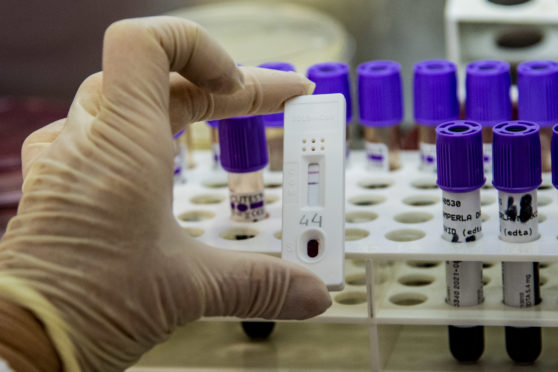
The battlefield philosophy of Helmuth Karl Bernhard Graf von Moltke, the Prussian field marshal, renowned commander of great armies and visionary military genius, was shaped by a simple maxim: “No plan of operations extends with certainty beyond the first encounter with the enemy’s main strength.”
Or as Mike Tyson put it, 100 years later: “Everyone has a plan until they get punched in the face.”
Well, Scotland, like every country in the world, has been punched in the face by Covid-19, and the hits keep coming. It is no surprise then to discover our emergency plan to deal with a pandemic did not, in fact, survive for long.
Of course, even the best-laid plans “gang aft agley” but, it would appear, Scotland’s plans were not best-laid or anything like it. After weeks of official stonewalling, we now have sight of the Silver Swan emergency planning document, written after a nationwide exercise intended to test the country’s emergency services’ readiness to deal with a pandemic.
And, not once, in all its 27 pages, across all of its 17 recommendations, does it mention testing programmes or contact tracing or potential problems in supplying enough personal protective equipment to key workers on the frontline. It was only written five years ago but has not, it would be fair to say, aged well.
Of course, all the exercises in the world could not prepare us for Covid-19. Its scale, speed and savage impact on so many is, in our times at least, unprecedented.
But, while we can forgive our governments at Holyrood or Westminster taking missteps as they struggle to constrain this invisible, brutal and fast-moving enemy, we will not forgive or forget if our political leaders try to hide errors beneath a pile of fast-talk and flim-flam.
As Labour’s Neil Findlay points out today, the Scottish Government’s official advice has changed dramatically, often overnight, on some of the most critical issues during this public health emergency.
Of course, mistakes will happen and will likely be forgiven during such frenetic times when every government in the world is going to make mistakes (although some seem to be making fewer than others). However, what will not be forgiven is a failure to swiftly rectify those mistakes.
Enough has been written, for example, about the awful and ongoing exposure of our care homes and those working on the frontline of our communities, to know something has gone very badly wrong in our efforts to protect them.
Meanwhile, experts tell us that, without a vaccine, testing and contact tracing is the only way forward, a policy which our leaders have been dismissing for weeks.
Our first plans may not have survived contact with Covid-19. Our next ones must.
When the bell goes and we finally come out of lockdown, we will need to be throwing punches.

Enjoy the convenience of having The Sunday Post delivered as a digital ePaper straight to your smartphone, tablet or computer.
Subscribe for only £5.49 a month and enjoy all the benefits of the printed paper as a digital replica.
Subscribe